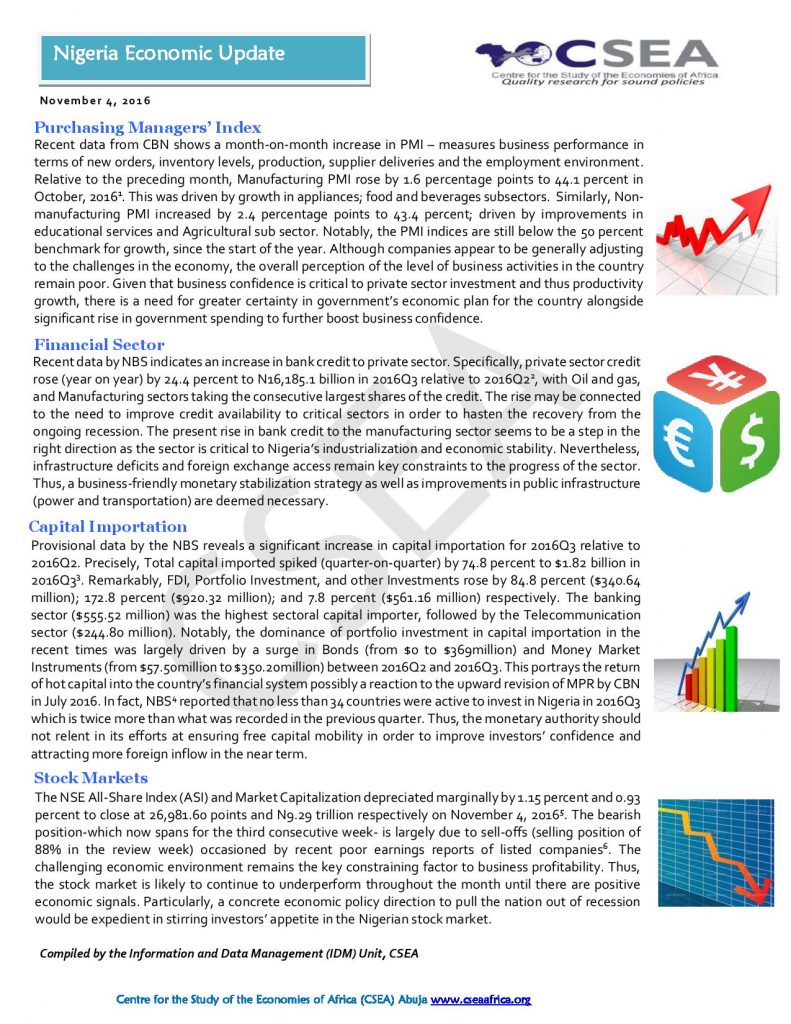Macroeconomic Report & Economic Updates

November 15, 2016
Nigeria Economic Update (Issue 47)
Recent
data by NBS indicates an increase in bank credit to private sector. Specifically,
private sector credit rose (year on year) by 24.4 percent to N16,185.1 billion
in 2016Q3 relative to 2016Q2, with Oil and gas, and Manufacturing
sectors taking the consecutive largest shares of the credit. The rise may be connected
to the need to improve credit availability to critical sectors in order to
hasten the recovery from the ongoing recession. The present rise in bank credit
to the manufacturing sector seems to be a step in the right direction as the
sector is critical to Nigerias industrialization and economic stability.
Related
Nigeria Economic Update (Issue 21)
Recent
data from the National Bureau of Statistics (NBS) shows that the value of
capital imported to Nigeria declined by 54.34 percent; from $1.56 billion
2015Q4to $710.97 million in 2016Q11. This is the lowest value since
the data was first released in 2007. Huge declines in Portfolio Investment
(71.54 percent) and other Investment (44.84 percent) were the major drivers of
the trend within the period. A myriad of factors have contributed to the
decline in investments. The plunge in crude oil prices, and the resultant negative
signals on investors confidence, was a key factor. This was exacerbated by the
FOREX restrictions and delays in the assentation of 2016 Appropriation Bill.
While the slight increases in oil prices and the recent signing of the budget
into law could improve the general economic prospects, monetary authorities need
to proffer solutions to the negative effects of the current FOREX restrictions
on investments.
